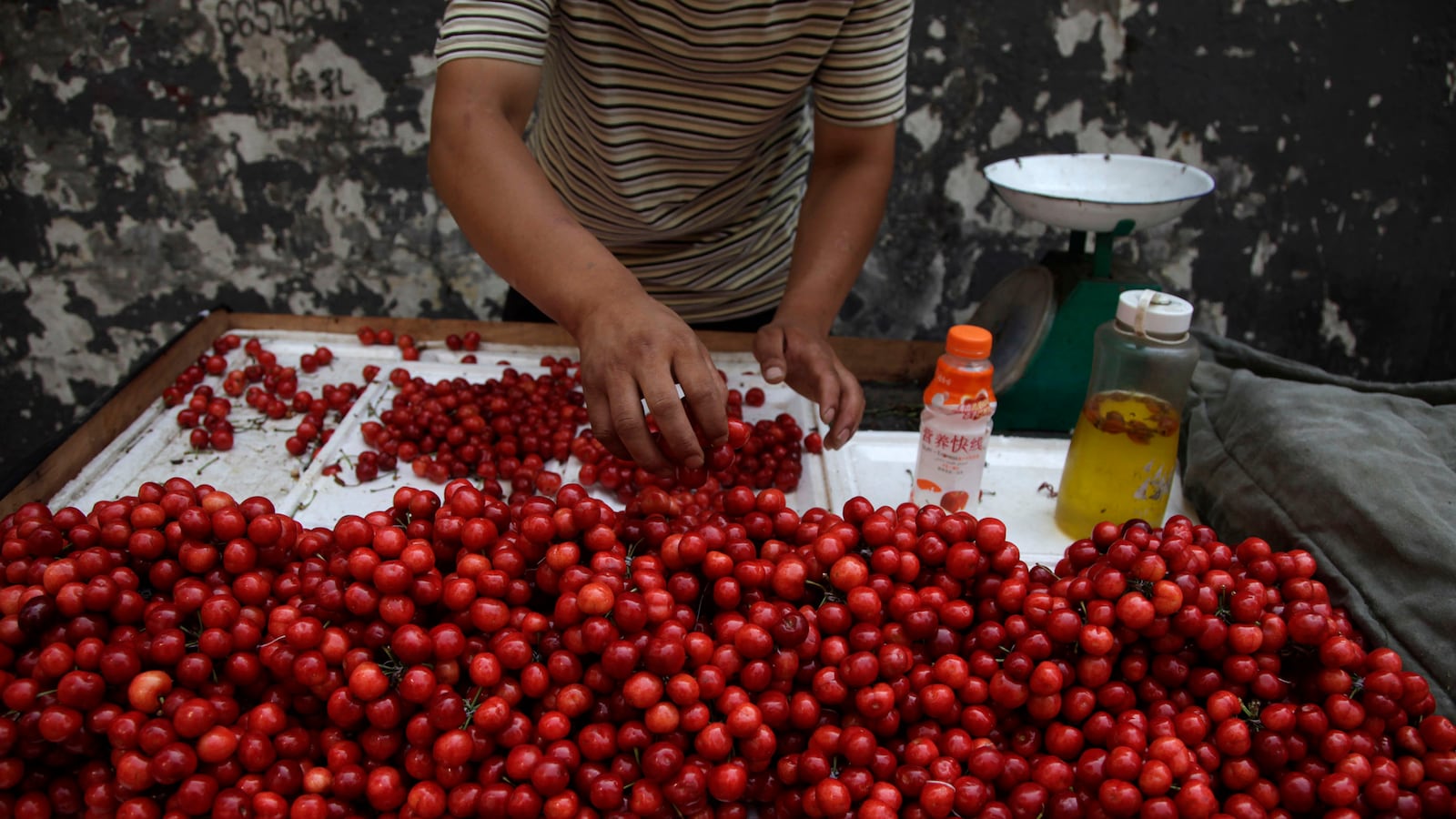We all know U.S. consumers have a voracious appetite for products made in China. That’s one of the reasons the U.S. runs a large, persistent trade deficit with the world’s second-largest economy. But trade runs in both directions. And as Chinese consumers gain purchasing power, it turns out they have a pretty voracious appetite for some American-made goods: cherries.

Food is a major export for the U.S. And China, which has a shortage of arable land and continuing issues with food safety, is eager to important foodstuffs from America. According to the Department of Agriculture, U.S. agricultural exports to China rose to $26 billion in 2012, up 38 percent from the previous year. Thus far, the food trade has mostly a business-to-business proposition – huge shipments of grains and soybeans (with long shelf lives) sent to food processors and manufacturers.
That’s changing, thanks to a partnership between the U.S. Department of Agriculture’s Agricultural Trade Office in Shanghai a Tmall.com, an e-commerce company owned by Chinese internet giant Alibaba. Tmall this summer ran pre-sale campaigns between June 26 and July 11 in order to test demand for freshly grown American cherries in China.
The demand is pretty massive. In its first promotion Tmall.com sold 110 tons of cherries -- about the weight of a Boeing 757. A second sale, which sold out in three days, had a limit set to 60 tons. Chinese consumers were able to get the product “faster than the majority of U.S. customers,” a representative said. The cherries take 48 to 72 hours to arrive from the Western U.S. – they’re grown in Washington, Oregon, Idaho, Montana, and Utah -- juicy and ripe, into Chinese kitchens. Now, 170 tons is the equivalent of 17,000 twenty-pound boxes, which represents a small percentage of overall production.
But in an age of sluggish consumer demand, any incremental increase is welcome.
“For the United States, this large amount of export means more opportunities and jobs,” said Leanne Wang, marketing specialist for the U.S. Consulate Agricultural Trade Office-Shanghai. “For China, it proves that with the increasing income level and economic development. Chinese consumers can afford high quality, safe, and nutritious import food from the U.S.”
Users pay a small deposit in the pre-orders for later delivery. The cherries are effectively pre-sold before they are even picked off trees to allow the growers in the United States time to gauge consumer demand and ship only the products that are needed.
The partnership between the USDA and Tmall.com began in December 2012 and “provides a channel for us to promote U.S. agricultural products to Chinese consumers directly,” Wang said. “The original cooperation occurred right before the Chinese New Year in 2013 and we wanted to provide different gift baskets made up of U.S. food to Chinese consumers, because gift-giving is such an important tradition.”
Tmall.com has received a 500 percent increase in imported food sales in the first half of 2013 – and the volume continues to grow.
Alibaba Group attempts to get the cherries overseas effectively, and without bearing high costs, said Florence Shih, an executive in the company’s international corporate affairs department. “The cooperation between the USDA and Tmall.com highlights the potential for U.S. businesses to tap into a growing demand from Chinese consumers for high quality imported food products,” she said. “The C2B (consumer-to-business) model can be applied to almost any type of product and allows suppliers to accurately estimate actual demand – only shipping what is sold.”
The origin of the cherries can be difficult to track, according to Keith Hu, director of international operations for Northwest Cherry Growers. Hu’s organization, Northwest Cherry Growers, represents growers from Washington, Oregon, Idaho, Monatna, and Utah. Combined, Washington and Oregon combine for about 95 percent of the group’s output. Produce is a product that will spoil – unlike many other U.S. exports – so freshness is always a concern. Hu said cherries have a shelf life of about 30 days.
“The freshness of the cherries was a major draw, and this type of produce is not currently widely available to Chinese consumers across the nation,” Shih said. “By shortening the supply chain both the supplier and consumer were able to save costs associated with warehousing, shipping, distributor fees, and so on to create a win-win situation.”






